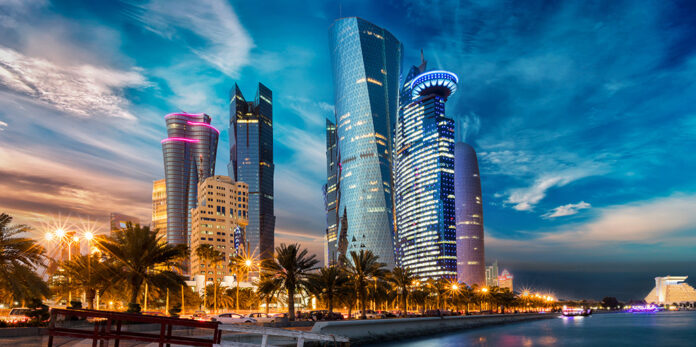Palo Alto, Calif.-based BridgeBio Pharma announced a USD250mn private placement equity financing this week led by Qatar’s sovereign wealth fund, the Qatar Investment Authority (QIA).
The deal, along with a USD500mn stake in U.K. water utility Severn Trent announced today, fits squarely with QIA’s strategic investment shift as it positions itself to be highly active internationally over the coming decade, even as other Gulf sovereign wealth funds retrench somewhat.
The QIA was established in 2005 to invest the revenues from Qatar’s liquefied natural gas (LNG) exports. By 2022, it had become the world’s tenth-largest sovereign wealth fund, with an estimated USD450bn of assets under management.
The asset base will grow further, boosted by:
• a 64% expansion of LNG output to 126 million tons per year by 2027, supporting fiscal surpluses expected to remain strong throughout the decade.
• long-term LNG contracts that reduce vulnerability to sharply fluctuating energy prices.
• weak government spending pressures, given the small population of only 3 million, fewer than 400,000 of whom are nationals.

Strategic Shifts
The QIA’s investment strategy has undergone several overhauls since being established in 2005.
Initially it bought Western European trophy assets, from luxury properties to professional football teams. It also acquired cut-price stakes in the financial sector by rescuing banks such as Barclays and Credit Suisse during the 2008-09 global financial crisis.
The approach mirrored a newly assertive foreign policy stance under then-Emir Hamad bin Khalifa Al Thani.
The 2013 accession of his son, Tamim bin Hamad Al Thani, and a subsequent change in the QIA’s leadership ushered in investment restraint. Deal-making slowed, and tended to be relatively small and indirect.
Investment strategy reverted to being more assertive in 2020 following another reorganization and a new mandate for direct investment.
The Covid-19-induced global slump that year allowed the QIA to pick up assets cheaply, and global conditions have continued to play to its advantage.
The rebound in energy prices and the surge in European gas demand triggered by Russia’s war on Ukraine has filled its coffers. Ongoing global economic uncertainty has limited other investors’ risk appetite, especially in emerging markets. Inflation has reduced many governments’ fiscal scope for capital spending, inducing a search for external funds.
Leaving Europe
Investment allocation strategy—by geography, sector and asset class—has shifted since 2020, with CEO Mansoor bin Ibrahim al-Mahmoud deprioritizing Europe in favor of the United States and major Asian economies.
Mansoor also aims to double QIA’s emerging markets’ allocation to 20%. Within that, India is a priority.

This has a commercial logic but also buttresses an important political and economic relationship, including Doha’s ambition for Delhi to extend and expand long-term Qatari LNG supply contracts.
Technology is a clear sectoral priority, especially applied technologies relevant to other target areas. For example, the long-standing involvement in financial services has extended into fintech and an interest in healthcare has been reflected in biotechnology investments.
Funding Decarbonization
Technologies and other industries related to the green energy transition are another priority. Doha argues that a commitment to clean energy and emissions reduction is consistent with its plans to expand hydrocarbon production.
In 2020, the QIA announced that it would no longer make new investments in fossil fuels. On the face of it, this was about environmental concerns. Still, such investments run counter to the fund’s mandate to diversify government revenues, and in any case, state-owned QatarEnergy handles hydrocarbon investments abroad.
Unlike Saudi Arabia and the United Arab Emirates, Qatar does not have a state-owned clean-energy developer, leaving the QIA to fulfil that role overseas. In 2021, it acquired a 50% stake in the African renewables portfolio of Italy’s Enel Green Power.
Its largest deal in 2022 was a EUR2.4bn (USD2.5bn) investment in German electricity supplier RWE to enable it to buy a portfolio of US renewable power plants.
As with the Indian deals, the purchase appeared politically judicious, as Doha was trying to persuade Berlin to enter long-term LNG supply deals; agreement was reached weeks later.

Help, Not Handouts
The QIA’s geopolitical role has been most evident in its move towards investing to mend or bolster intergovernmental ties with poorer regional states.
Qatar fell out with Egypt in the early 2010s. Following the 2021 restoration of diplomatic ties, Doha deposited USD3bn in Egypt’s central bank to ease a foreign exchange crisis.
Future assistance will be investment rather than handouts. The QIA wants to profit from Cairo’s need to divest its state corporate holdings.
Deals have been slow to materialize, but an agreement for the QIA to acquire state-owned Telecom Egypt’s 45% stake in mobile provider Vodafone Egypt is reportedly close. Negotiations continue over seven landmark government hotels.
Doha has also used its advantage of being more acceptable than its Gulf neighbors to Iraq’s Iranian-aligned government. QatarEnergy appeared to rescue a ground-breaking USD27bn oil and gas deal involving French oil major TotalEnergies and an Iraqi state firm in April by acquiring a 25% stake.
The QIA has also leveraged the foreign exchange shortage and fiscal strains afflicting Doha’s long-time ally, Ankara, to increase its Turkish portfolio. In 2022, it acquired an interest in Eurasia Tunnel, an Istanbul-based road tunnel operator, and in May, it joined a financing round for artificial intelligence-backed marketing platform Insider.


